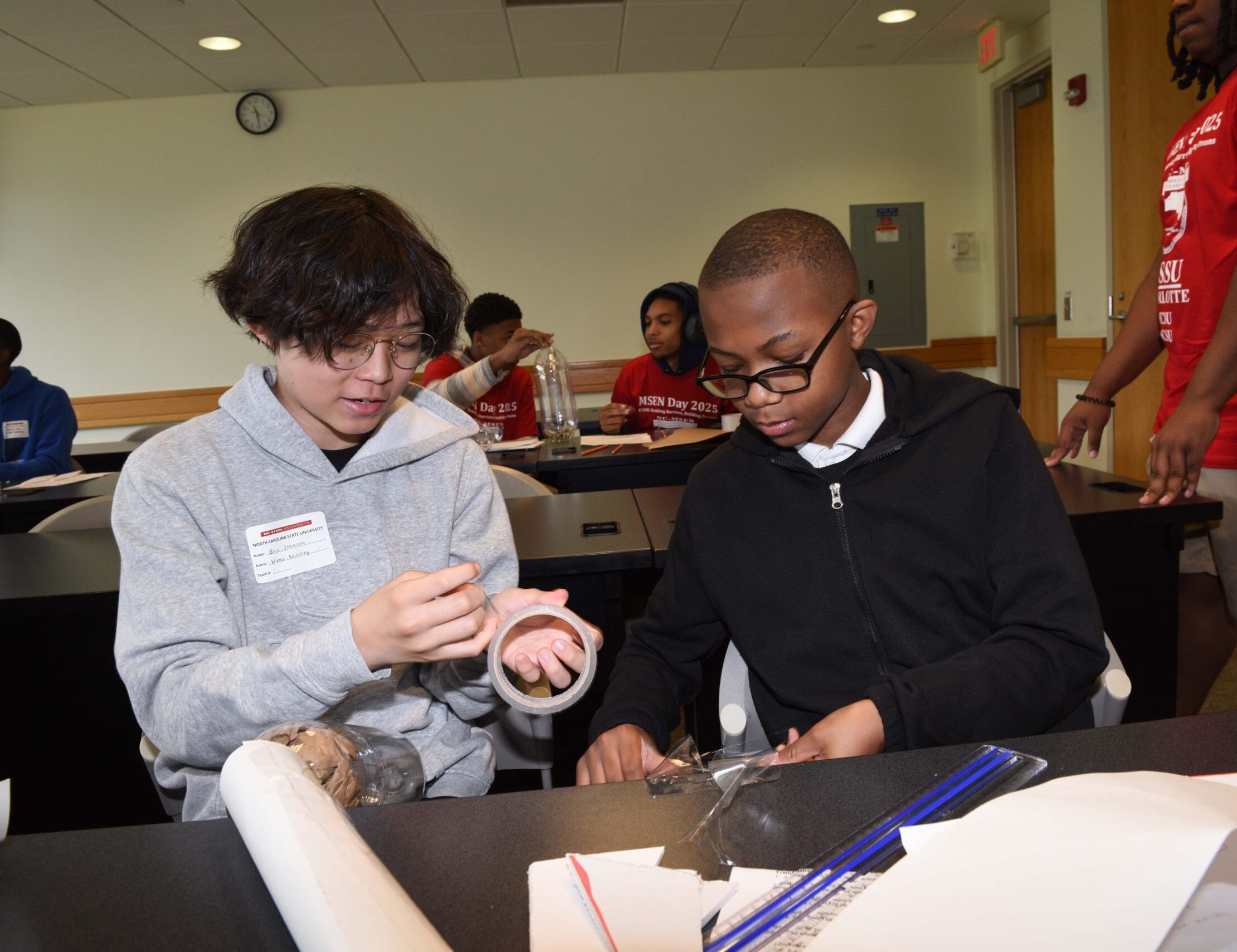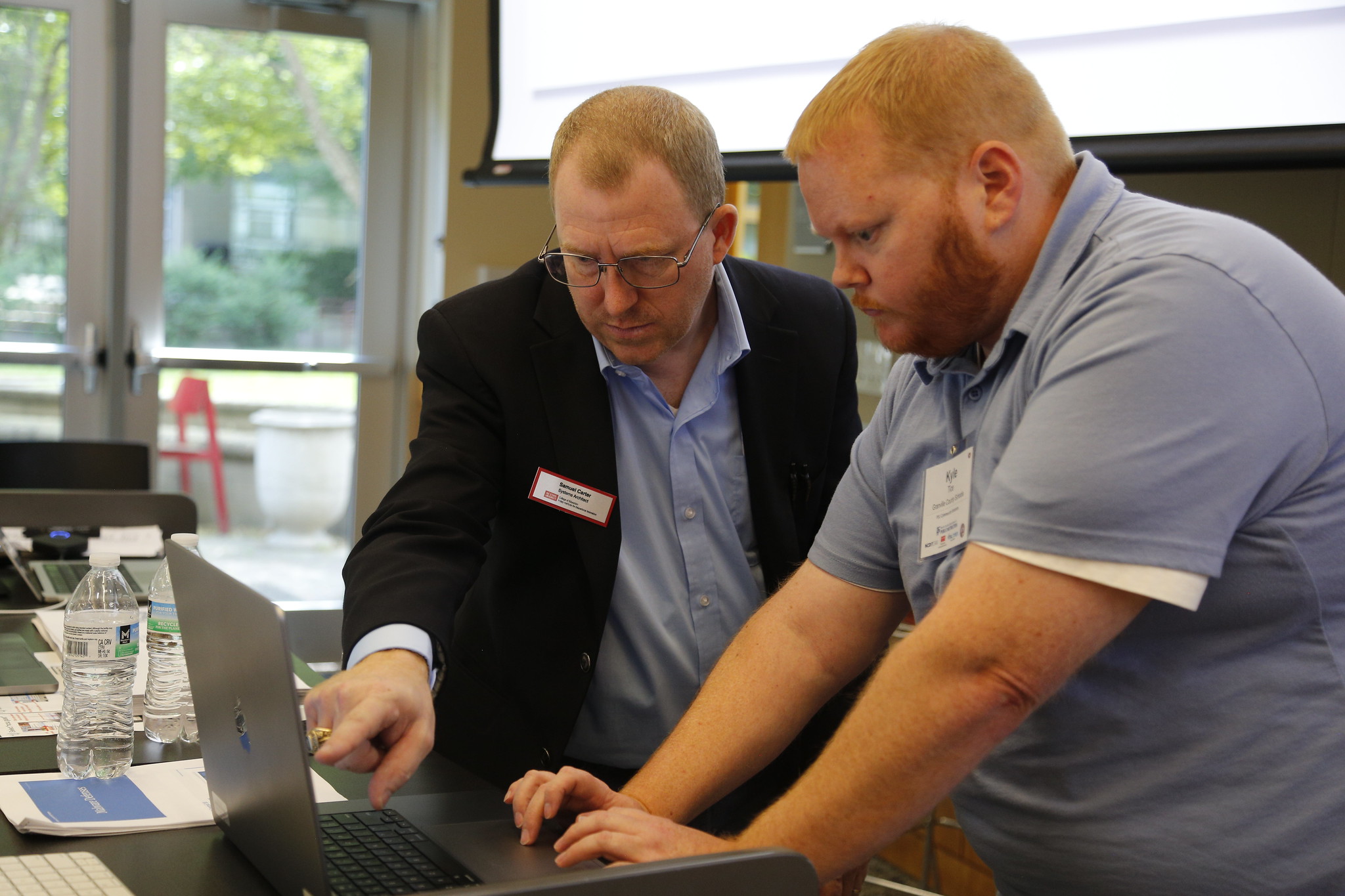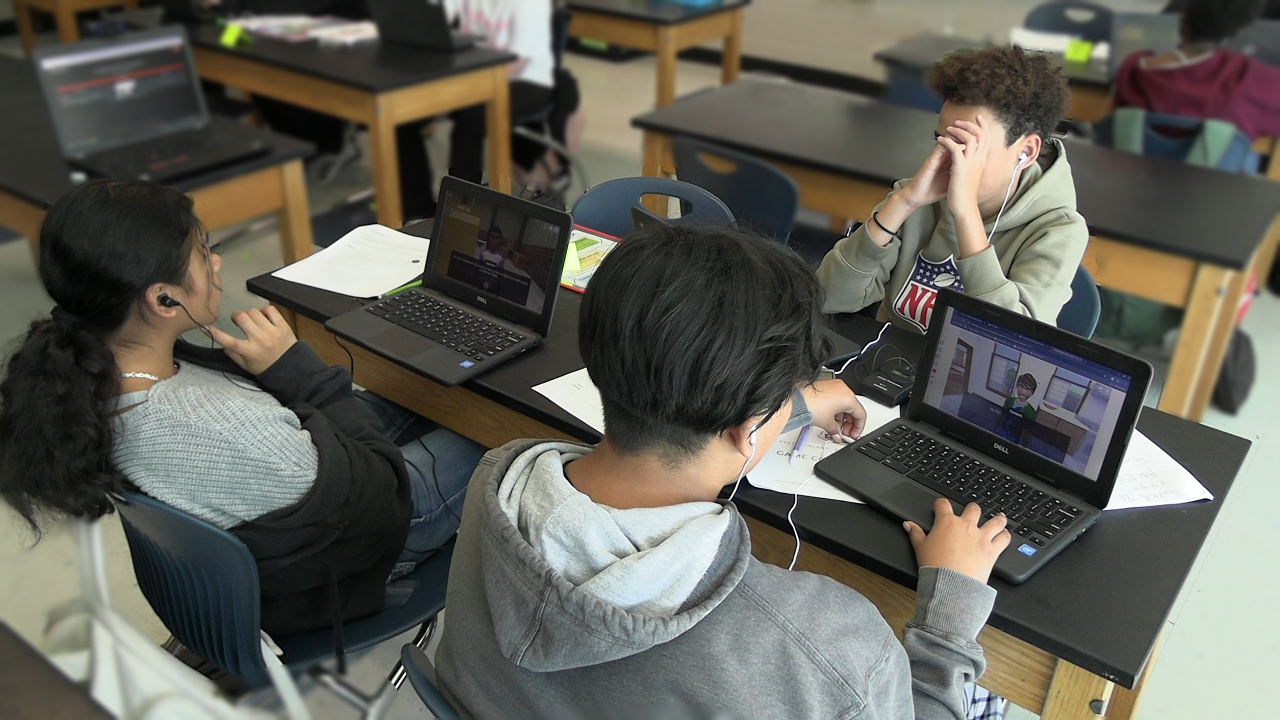New $1 Million Grant Will Support Broadening Participation in Computer Science and Computational Thinking
A team of faculty and researchers at NC State University were recently awarded a three-year $1 million National Science Foundation grant in collaboration with Wake County Schools, UNC-Charlotte and Charlotte-Mecklenburg Schools to broaden participation in computer science (CS) and computational thinking (CT) in North Carolina. Dr. Eric Wiebe, Dr. Dave Frye and Dr. Sherry Freeman from the Friday Institute for Educational Innovation and Dr. Tiffany Barnes from the Department of Computer Science at NC State will lead this project, starting this month, titled EcoCS: Developing a Systemic, Scalable Model to Broaden Participation in Middle School Computer Science Using an RPP Approach.
The grant will allow the EcoCS team to expand their work at Wake County Public School System’s Reedy Creek Magnet Middle School: Center for the Digital Sciences in Raleigh, North Carolina. They will work with the newly formed Digital Sciences School Leadership Team, using a research-practice partnership (RPP) approach to deepen the school culture of computational thinking.
Project goals include:
- Providing equitable access to underrepresented students in computing
- Preparing middle school students for computing curriculum in high school
- Developing and testing effective CS/CT modules that will integrate into existing math and science curriculum
- Investigating CS/CT-focused barriers and supports
- Sharing RPP findings and replicating the process at other schools
The past two years laying the RPP groundwork between the Friday Institute and Reedy Creek has been crucial to the success of this project because it works in collaboration with the educators at Reedy Creek instead of simply adding to their heavy workloads.
“Traditionally with research partnerships between universities and schools, the university faculty drive the research,”said Dr. Freeman. “They have the idea for an ‘innovation’ they want to research, they get the grant, and their ideas drive the work. A research-practice partnership turns that approach on its head. We start by going in and asking practitioners or school administrators, ‘What are the biggest challenges you’re facing?’ Then we think about how can we can use research and our expertise to help address that problem. It is a long-term collaboration that is driven by the needs of the practitioners.”
The EcoCS team will also use their model of school-wide CS/CT integration at Reedy Creek to inform the development of an RPP at another newly formed CS/CT focused magnet school, Northridge Middle School, in Charlotte, North Carolina. Staff and faculty from UNC-Charlotte’s College of Computing and Informatics and the Center for STEM Education will facilitate the work at Northridge.
“We are replicating evidence-based practices that have been demonstrated by NC State’s partnership and developing partnerships within a different context that will allow us to propagate lessons learned in both the research-practice partnership approach, the STEM Ecosystem model and the pedagogies that work well in middle school CS education,” the UNC-Charlotte team said in a joint statement. “We foresee that this partnership will facilitate broader understanding in other K-12 educational contexts.”
The EcoCS team hopes that their work in Charlotte will show them what can and can’t be replicated so they can expand this approach to other schools, which is desperately needed right now in K-12 education. This integration of computational thinking and computer science principles into core K-12 curriculum has been recognized as imperative to fostering key 21st century thinking skills for students entering the future workforce.
Unfortunately there is no established pathway or assessment standards on how to infuse these skills into mainstream educational experiences, nor are teachers equipped with the content knowledge to implement these principles into their classrooms.
Despite these challenges, North Carolina schools have joined this growing movement to incorporate computational thinking and computer science into mainstream K-12 curriculum. The Friday Institute has brought together practitioners, policymakers and researchers to help develop teacher and school capacity to add these principles to curriculum. Its RPP work with Reedy Creek to integrate CS/CT is just the beginning.
“We have explored and experimented with little bits and pieces of this, but we saw the potential for doing so much more,” said Dr. Wiebe. “That’s why we’re really excited. Now we’ve got funding and a school willing to buy in and work with us on growing this research-practice partnership to look at what a whole-school ecosystem looks like.”
- Categories:



